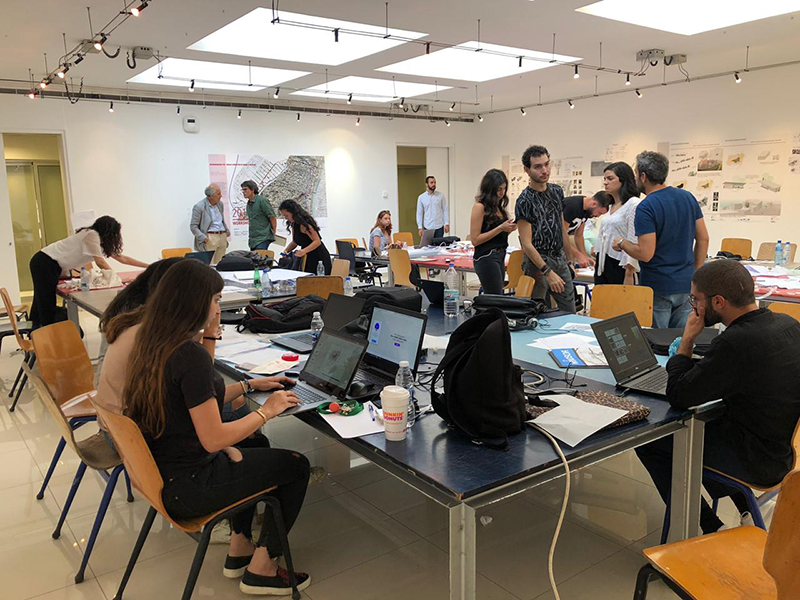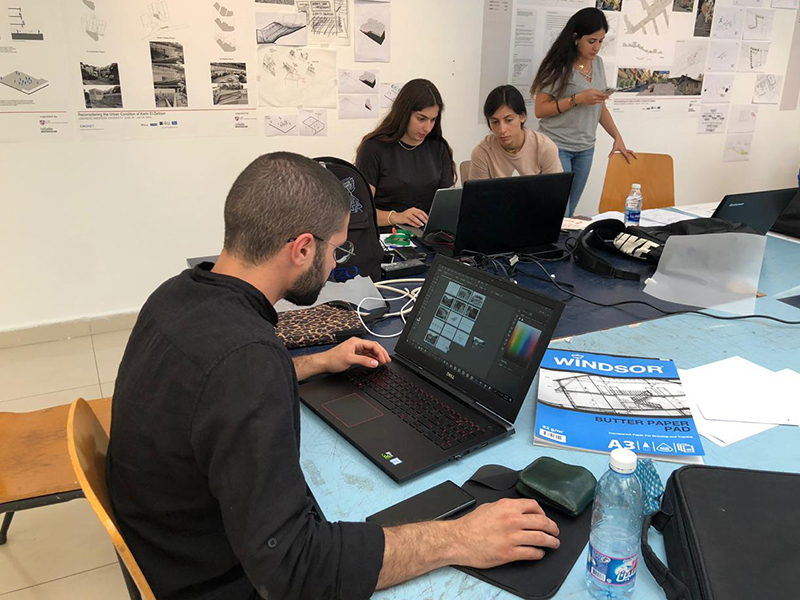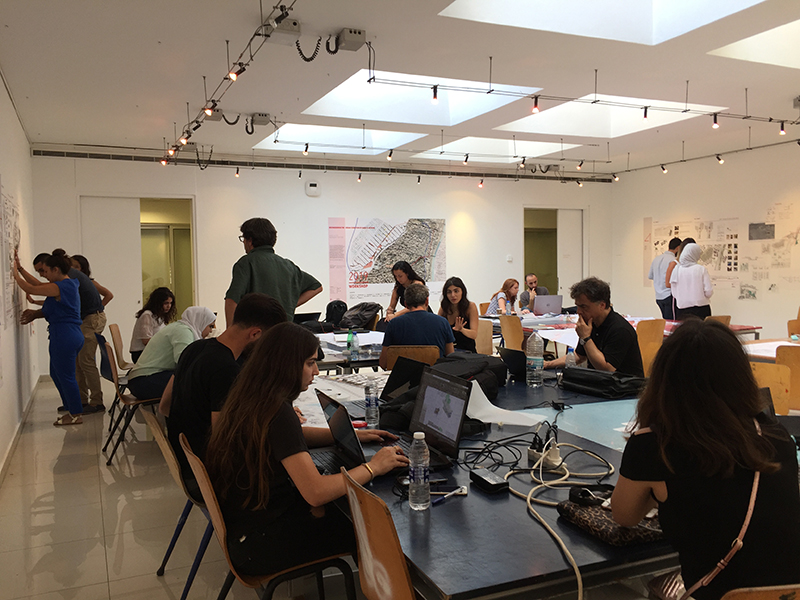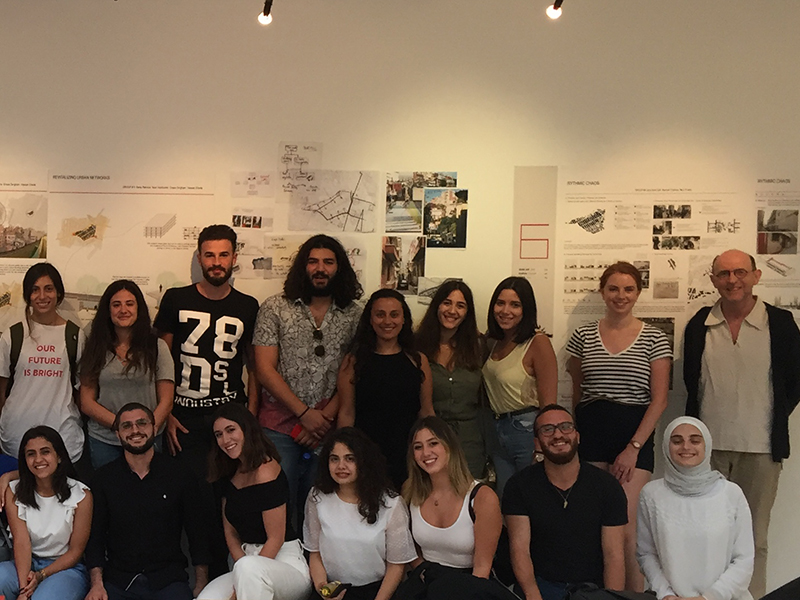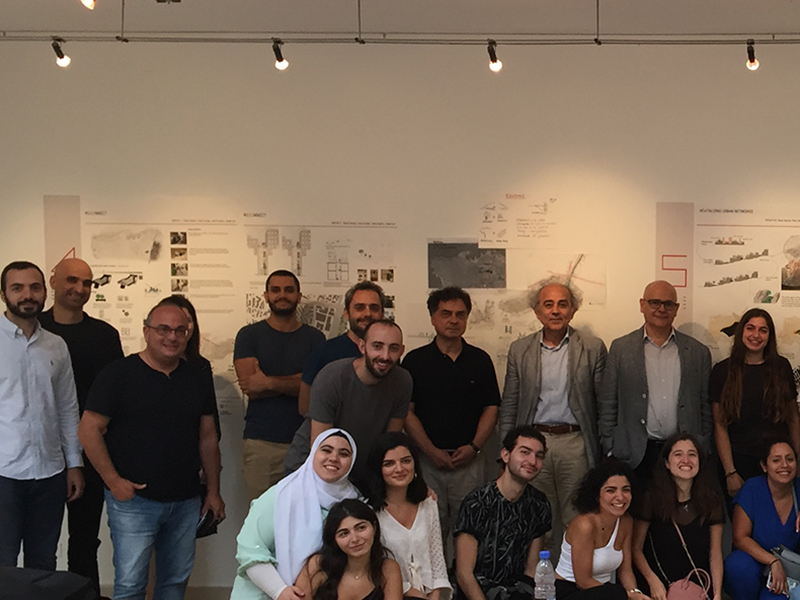Urban Revitalization of Karm el Zeitoun
From March to July 2019, OIKONET, an international network of schools of architecture and planning, hosted their fourth international workshop dedicated to the restructuring of the district of Karm El-Zeitoun in Beirut. The concluding workshop took place at the Lebanese American University (LAU), Beirut campus, from June 29th until July 6th, 2019.
The workshop was organized by the School of Architecture and Design at LAU, in collaboration with the School of Architecture La Salle in Barcelona and the Beirut Municipality. It brought together 26 students from 4 different schools of architecture in Lebanon, Turkey, Ireland and USA. The students’ work was supervised by seven tutors from five institutions— Maroun El-Daccache and Wissam Khairallah from the Lebanese American University (Lebanon), Leandro Madrazo and Ángel Martín from La Salle (Barcelona, Spain), Jim Roche from Dublin School of Architecture (Ireland), Carla Sentieri from the School of Architecture (Valencia, Spain) and Sedef Özҫelik from Gebze Institute of Technology (Turkey).
Dr. Maroun Daccache, Chair of the Department of Architecture and Interior Design at LAU, stated that “the study of Karm El-Zeitoun is related to the degraded areas in Beirut and was one of the proposed areas, to the Municipality, as a pilot project—to be reactivated in the sense of an urban structure”. Specifically, Karm El-Zeitoun was selected due to its precarious condition, as well as its historic value.
The workshop which focused on proposing viable design interventions, was supplemented by lectures on the history and development of the area. Dr. Leandro Madrazo, from La Salle in Barcelona, explained that the case at hand “is not only a matter of fiscal renovation, but it is also a matter of social and community renovation”. Thus, the case study required students to study the social conditions of the community that lives within Karm El-Zeitoun and explore the potential of urban spaces in a manner that represents and invigorates the lives of people living there. Dr. Madrazo added that the project “tried to engage architecture with social issues in an attempt to promote interdisciplinary techniques—that of which architects and planners learn to understand the social, political and cultural dimensions underlying certain issues”.
With a complex case study, such as Karm El-Zeitoun, and exposure to international faculty, the insights that developed throughout the workshop definitely had a positive effect on the participants. Rami Abi Saab, an architecture student at LAU, attested that “the workshop was beneficial on an educational and perspectival level. I learned new strategies of urban planning and was introduced to the consideration of social complexity when studying a case”. Professor Ángel Martín, from La Salle, explained the challenges behind the social complexities that were faced. According to Martín, “when studying Karm El-Zeitoun, one of the most challenging aspects was creating social cohesion— that would lead to social sustainability. This is because of the diversity of cultures found in the area. In other words, it is challenging to formulate a single identity, within the architectural space, that speaks to/ represents all the different ethnicities in the area”.
However, participating students were able to overcome the difficulties by carefully dividing the workshop activities into time-oriented blocks (online/onsite), using web-based collaborative learning, referring to previous research carried out on similar case studies, and having students develop proposals at the end of the workshop that were presented to a multi-disciplinary panel including Elie Haddad, Dean of the School of Architecture and Design at LAU, Matilda El Khoury, Councilor at the Municipality of Beirut, Fouad Samara, Joseph Kiprianos, Marwan Basmaji and Elie Abs, professors at LAU, Serge Yazigi, professor at AUB and Wael Sinno, Area Coordinator at UN-Habitat.
The final presentation showcased the work of seven teams that presented each their particular problematic and methodology, proposing specific interventions for Karm El-Zeitoun. The studies focused on restructuring the architectural landscape in order to make room for social activities—all of which would bring life back to the location and community. By reintegrating this area within the rest of the neighborhood, the district may become better integrated within the city. Hadi El-Kibbi, a student at the University of Pennsylvania, noted that “the collaboration offered a lot of rich input from the different individuals participating. They each have their own unique design perspective— which made it interesting when all of these great ideas came together and established a project and actually went through with it; specifically, when you know the space and it is the city that you grew up in. The idea of being a part of something happening within the community that I live in is extremely rewarding”. All in all, the workshop provided students with hands-on experience and lessons that they can carry throughout their careers as future architects and urban designers.
